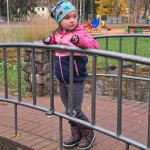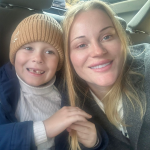How Do Autistic Children Relate to Animals?
The relationship between children with ASD and pets can vary greatly. It depends on the individual traits of the child and how the autism spectrum affects them. However, specialists have highlighted several general characteristics that are commonly observed in many children with autism.
Sensitivity and Empathy. Some autistic individuals may feel deep empathy for animals. This could be because they find it easier to perceive the emotional states of animals than those of people, or simply because animals do not present the complex social signals that might be difficult to understand. Animals can offer a source of comfort, a non-conflicting, and predictable environment.
Attachment to Pets. Many autistic individuals form strong attachments to their pets because animals provide a sense of security and stability. These relationships can be especially important for people with autism, who may struggle with social interactions with people.
Low Stress Levels in Interactions with Animals. Animals are often less demanding than humans, not expecting the autistic individual to follow complex social norms or impose complicated emotional reactions. This can reduce stress for autistic individuals and create a space for positive interaction.
Some Difficulties in Relations with Animals. Autistic children may face challenges in perceiving or reacting to the behavior of animals. For example, some may be sensitive to sensory stimuli (sounds, smells, touches) produced by animals, which may cause anxiety or even rejection.
Using Animals in Therapy. In autism treatment practices, animals are often used for therapy. For instance, animal-assisted therapy (canine therapy) or equine therapy (using horses) can help develop social and emotional skills, as well as reduce anxiety levels.
In practice, it is clear that children with ASD often find joy and support in interactions with animals.
How to Choose the Right Pet for a Child with Autism?
According to specialists in managing autism, the most desirable pets in a home with a child with ASD are: aquarium fish, turtles, cats, or dogs. Birds, small rodents, and reptiles are not recommended. Each type of pet has its own preferences for selection.
Aquarium Fish. An aquarium would be ideal for a child who tends to engage in repetitive play and enjoys focusing on observing things. Fish require minimal care and do not need tactile or other forms of contact. However, observing the life of the fish can calm and occupy the child.
Terrarium with a Turtle. This allows the child to observe the animal’s life and, if desired, make contact. Such contact generally does not harm the animal. Turtles are easy to care for, hardy, and live long lives.
Cats. Gentle, affectionate, and playful animals that enjoy maintaining boundaries. Interacting with cats helps open up the child’s emotional sphere, allowing them to show empathy and attachment. It’s important that the child expresses interest in the animal.
Dogs. A dog is the best friend for a child and will enrich and break up their daily routine. Dogs are often used in autism therapy in many rehabilitation centers. They help children become more attuned to emotions, express them, and be open to social interactions.
Without experience in caring for pets, it’s best not to get animals that are difficult to care for, require special living conditions, or could potentially be dangerous for the child.
Timely Correction of Autism Using Stem Cells
Is early correction of autism possible? Any corrective therapy for autism should begin at the earliest possible age as soon as the diagnosis is made. Stem cell transplantation is considered an innovative yet effective therapy for ASD, offering opportunities for the child’s full development and adaptation in adult life.
You can learn more about the procedure from the consultants at the Mardaleishvili Medical Center.
Autism Treatment Center Videos
Autism treatment with own stem cells
Cord blood association congress
International Quality Crown
Autism Treatment Reviews
Autism treatment with own stem cells
The story of Alessandro (6 years old)
Autism Patient Testimonial - Stem Cell Treatment
Clients Testimonials

Review by Anastasia, mother of Yusup (8 years old) Read More

Feedback from Nathalie, mother of Andre (9 years old) Read More

Feedback from Yulia, mother of Emily (7 years old) Read More

Feedback by Everita, Katrina’s mother (5 years old) Read More

Feedback from Igor, David’s father (12 years old) Read More












